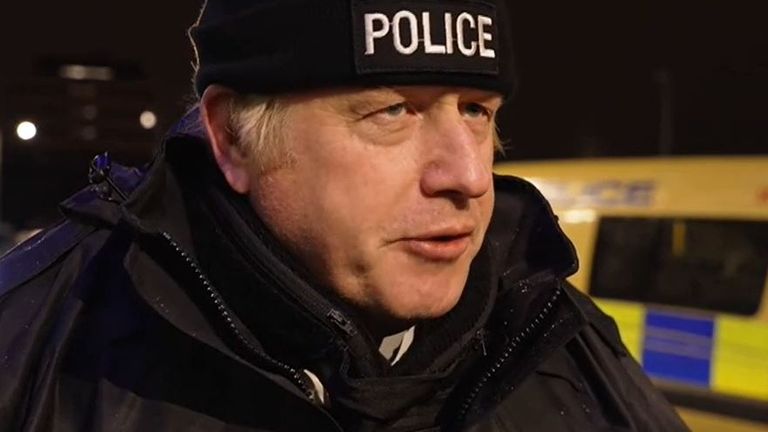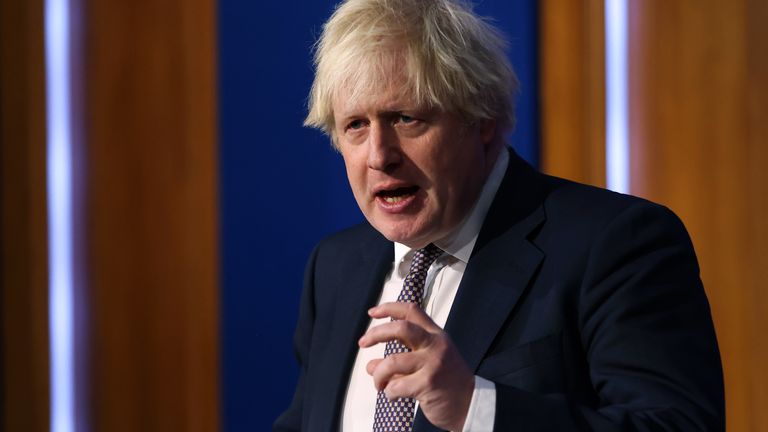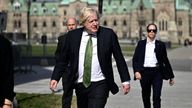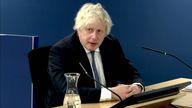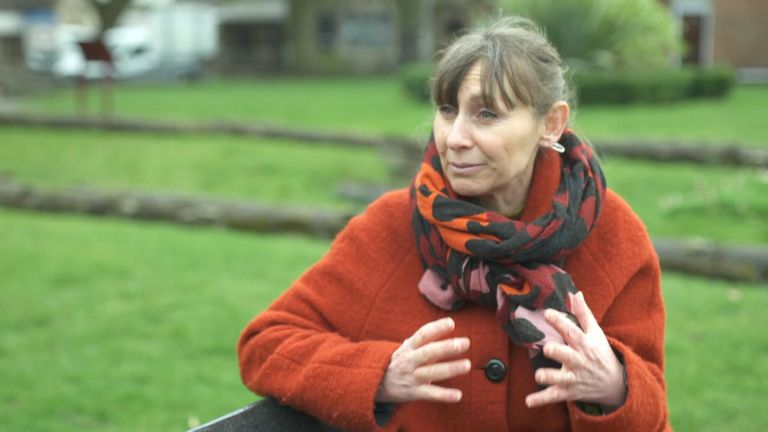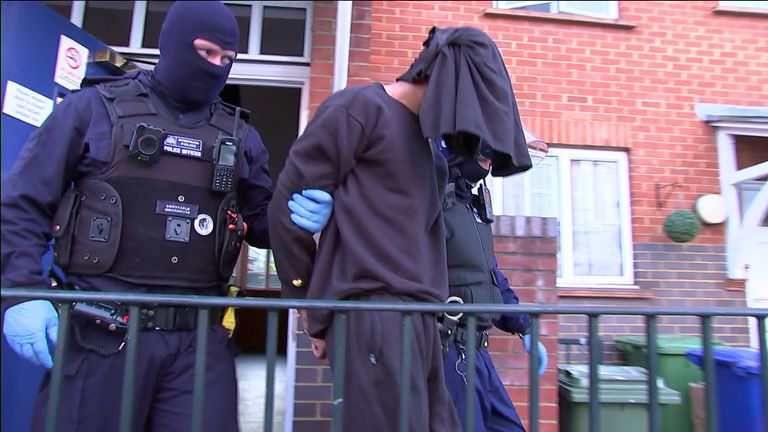Drug users face removal of passports and driving licences under Boris Johnson's new 10-year plan
As part of a 10-year plan for tackling drugs crime and taking on the "kingpins" behind supplies, the PM is warning criminals they will have "nowhere to hide". And he is also pledging the largest-ever increase in investment in treatment and recovery for addicts.
Monday 6 December 2021 13:52, UK
Harsher punishments to deter drug use, including the removal of passports and driving licences, night-time curfews and travel bans like those imposed on football hooligans, will form part of a government crackdown on illegal drug-related crime.
As part of a 10-year plan for tackling drugs crime in England and Wales and taking on the "kingpins" behind supplies, Boris Johnson has warned criminals they will have "nowhere to hide".
The prime minister is promising a £300m investment to close down drugs gangs and dismantle 2,000 more "county lines" supplies with thousands more arrests.
Mr Johnson is also pledging the largest-ever increase in investment in treatment and recovery for addicts, as well as looking at new measures to reduce demand and deter people from illegal drug use through more meaningful consequences.
The Home Office pointed to evidence that shows there are more than 300,000 heroin and crack cocaine addicts in England who, between them, are responsible for nearly half of crimes such as burglaries, robberies and theft from shops.
Drugs crime also drives nearly half of all homicides and the cost to society of wrongdoing by addicts is estimated at nearly £20bn a year in England alone, the department added.
'They need to be taken off drugs'
Ahead of the publication of the 10-year drugs strategy on Monday, the prime minister said the government was "putting a lot more investment" into "tackling the 300,000 problem drug users who drive about half the acquisitive crime and about half of the homicides in this country".
He said: "What we're doing is we are ramping up our campaign against the county lines networks that are preying on these users.
"You've got to invest in rehabilitation; everyone who knows about drugs crime will tell you that (these) 300,000 people, their lives, they are chaotic.
"They need to be taken off drugs, they need to be put into rehab, so you've got to invest in rehab."
The PM added: "You've got to be tougher on the county lines gangs, you've got to be tougher on the criminals who are doing it, but you've also got to make sure that you find those 300,000 people and you help them.
"You can't simply arrest them time after time and put them back into prison again and again - you've got to do rehab as well."
Known as "county lines" supply, the government is promising to invest up to £145m in work to crack down on drug dealers in major cities who establish networks - often through younger and more vulnerable people - for the supply and sale of drugs to users in towns and rural areas.
The Home Office said its county lines programme, which will target road and rail networks, had already closed 1,500 supply routes and made more than 7,400 arrests with the safeguarding of more than 4,000 vulnerable adults and children.
Mr Johnson also told The Sun on Sunday the action to tackle middle class drug use could include removing the passports and driving licences of offenders.
Among other action being pledged in the drugs strategy, the government is promising to:
• Carry out 6,400 disruptions against the activities of organised criminals - an increase of 20%
• Expand the use of drug testing when police make arrests in order to direct users towards treatment or other interventions
• Increase the number of police forces who will run new schemes focused on intervening on a wide range of individuals at an early stage, such as attendance at drug awareness courses with criminal sanctions possible for those who continue to use drugs
• Test messages on university campuses as part of a pilot campaign to try and discourage drug use at an early stage
• Give judges power to order drug testing of anyone serving a community sentence whose offending is related to drug use, with them liable to be resentenced to a prison term if they test positive
• Use drug dealers' seized phones to contact their clients with messages to discourage drug use or direct them to support.
There will also be extra cash for 50 local authorities with the worst drug problems, including Middlesbrough, Blackpool, Liverpool, Hull and coastal towns in the North East and Yorkshire.
Home Secretary Priti Patel said: "It is clear that the drugs trade is still driving so much crime - we must do more to prevent these ruthless gangs ruining lives, tearing apart communities and exploiting young people.
"This strategy will help to relentlessly pursue the kingpins behind these supply lines, making our streets safer."
'The drug problem has got a lot worse'
Labour leader Sir Keir Starmer said government cuts had made the problems worse.
"There's no doubt that the drug problem has got a lot worse in the last 10 years, particularly issues like drug-related deaths and the county lines, which are destroying lives," he said.
"The question for the government is not just over the plans today but the money that they have taken out of the system - millions and millions of pounds have been taken out of the system over the years and that has caused a lot of the problems."

